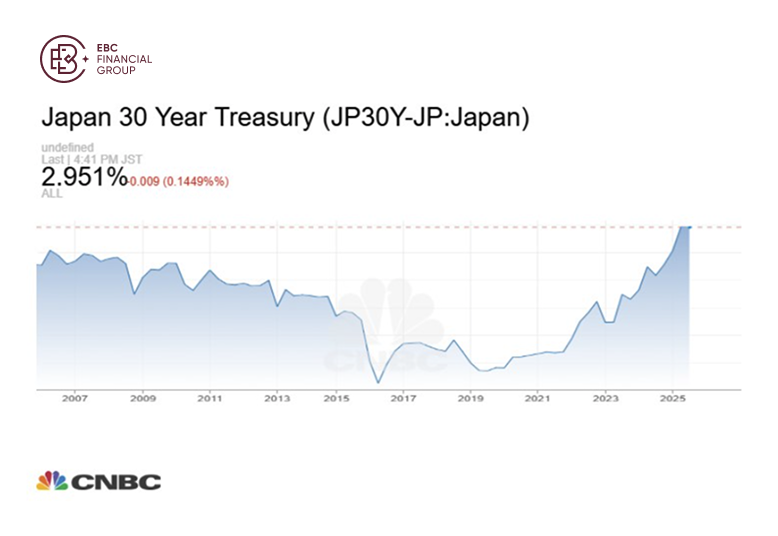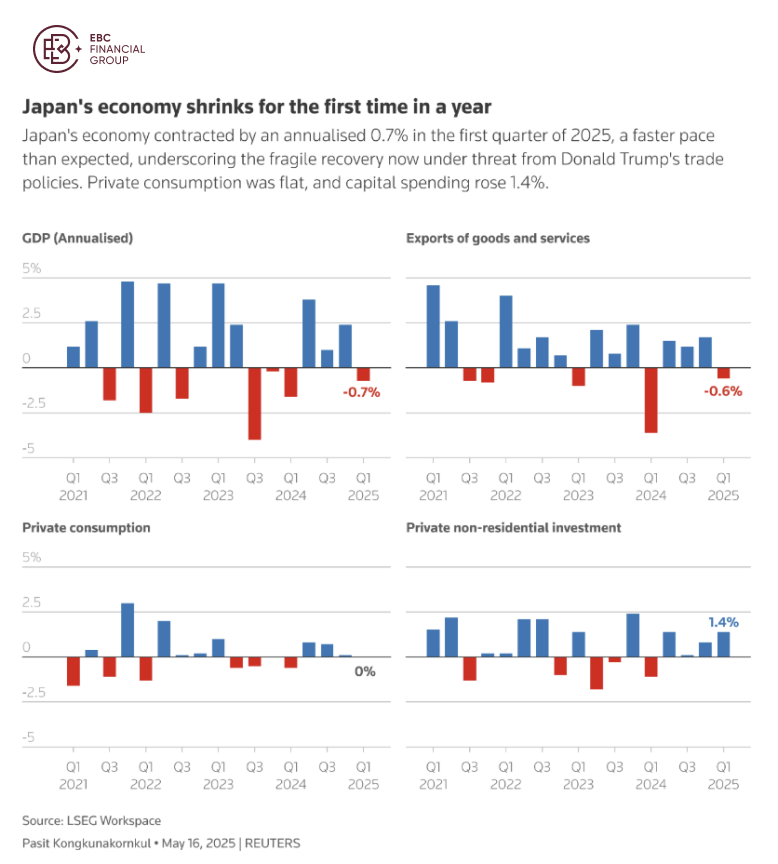Overseas investors bought ¥8.21 trillion worth of Japan's equities and bonds
in April, according to government data. That marked the largest increase for a
calendar month since at least 1996.
But foreign investors net sold ¥141.1 billion in long-term government bonds
in the week ended May 10, while Japanese investors bought a net ¥1.92 trillion
into long-term overseas bonds.
Investors are shunning super-long bonds on fears of Japan's fiscal problems,
which has eroded liquidity and caused market distortions unseen in the past,
according to Sumitomo Mitsui Trust Asset Management.

The 30-year yield already surged to within a whisker of a record high, which
could hurt business confidence and make it harder to convince the public of the
need to push up short-term borrowing costs.
On top that, net supply is concentrated in super-long bonds. The downward
price pressures in those sectors have been particularly acute, outstrip anything
seen in other major markets.
While the level should have enticed local buyers, many are sitting on the
sideline, spooked by the volatility and US tariffs onslaught. It is uncertain
whether yield curve will steepen further.
Although PM Ishiba has resisted calls to cut the consumption tax rate, he is
under pressure to compile a fresh spending package - a move that will add to the
heaviest debt among major developed countries.
BOJ walks a tightrope
The shifting tide in bond market put the BOJ in a precarious position,
balancing calls to keep borrowing costs low to protect the economy, against the
need to lift rates to control rising consumer prices.
Most economists now expect the BOJ will hold interest rates through
September, a Reuters survey showed, although a slight majority still see at
least a 25-bp hike by year-end.
Those results echoed views expressed by rate-setters that Washington has not
derailed the endeavours for slightly tighter monetary conditions, even as many
peers are leaning toward rate cuts.
While money markets have pared bets on BOJ rate hikes for this year, Ales
Koutny, head of international rates at Vanguard, reckons easing trade tensions
add to the case for tighter policy.
Deputy governor Shinichi Uchida told parliament on Tuesday the central bank
expects wages and prices to keep rising, keeping it on course to push ahead with
QT programme.
Despite that, another board member Toyoaki Nakamura warned on Friday "rushing
to raise interest rates when growth is slowing could curb consumption and
investment with a lag."
While capex remains firm, uncertainty over a trade deal between Japan and the
US is already prodding Japanese firms to put off spending plans or take a
wait-and-see approach, he said.
Logjam in trade negotiation
Japan's top trade negotiator, Ryosei Akazawa, could travel to Washington as
soon as next week for a third round of trade talks after hope of a quick deal
has faded, sources with knowledge of the plans said.
Local policymakers and ruling party lawmakers have said they see no merit in
striking a deal unless a 25% tariff on car imports is lifted, given the
industry's economic importance.
Toyota Motor said it expects profit to decline by a fifth in the current
financial year; Honda had downgraded almost every financial metric for its
current fiscal year ending in March 2026.
Takahide Kiuchi, executive economist at Nomura Research Institute, predicts
that bilateral talks will drag on, citing that keeping levies on Japanese goods
in place is less painful for Trump than doing so on Chinese goods.
Japan's real GDP contracted an annualized 0.7% in January-March, preliminary
data showed, much bigger than a median market forecast for a 0.2% drop. The
surprise highlights challenges ahead.
The decline was due to stagnant private consumption and falling exports,
suggesting the economy was losing support from overseas demand even before
sweeping "reciprocal" tariffs were announced.

Without greater clarity on a trade deal, more rate cuts, which would deepen
recession, seem unlikely. For this reason, the yen's rally could stall for a
while though the yield gap between Japan and the US has narrowed rapidly.
Disclaimer: This material is for general information purposes only and is not
intended as (and should not be considered to be) financial, investment or other
advice on which reliance should be placed. No opinion given in the material
constitutes a recommendation by EBC or the author that any particular
investment, security, transaction or investment strategy is suitable for any
specific person.





















